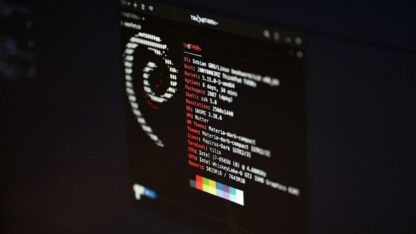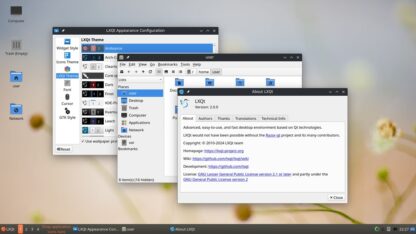-

How to Install PHP on Debian: Complete Step-by-Step Guide
PHP (Hypertext Preprocessor) remains one of the most popular server-side scripting languages powering over 77% of websites worldwide, including platforms like WordPress, Drupal, and Laravel applications. If you’re running latest Debian Linux and earlier versions…
-

Debian vs Fedora: A Comprehensive Comparison
Choosing the right Linux distribution can feel like picking your favorite child—except this decision actually affects your productivity, system stability, and potentially your sanity. Among the hundreds of Linux distributions available, Debian and Fedora consistently…
-

How to Use TLP? A Guide to Maximizing Your Linux Laptop’s Battery Life
Struggling with poor Linux battery life? Learn how to use TLP, the ultimate power management tool. Our guide covers installation, configuration, and optimization to extend your laptop’s battery life significantly.
-

20 Essential Things to Do After Installing Debian (Beginner-Friendly Guide)
Discover the 20 essential things to do after installing Debian in this beginner-friendly guide. Learn how to update, install drivers, enable codecs, customize themes, secure your system, and optimize performance for the best Debian Linux…
-

How to Fast Boot Debian Linux: A Complete Step-by-Step Guide
Debian is one of the most reliable and stable Linux distributions, but if you’ve used it for a while, you might notice that it boots a little slower compared to some lighter Linux distros; although…
-

How to Use Zip and Unzip Commands on Debian Linux: Complete Guide
Learn how to use zip and unzip commands on Debian Linux with this step-by-step illustrated guide. Covers installation, compression, extraction, password protection, exclude/include patterns, split archives, and troubleshooting with real terminal examples, FAQs, and tips.
-

Top 10 Debian Commands Every Beginner Must Know
New to Debian Linux? Discover the top 10 Debian commands every beginner must know. Learn essential commands for navigation, file management, installing software, and system control with clear examples.
-

How to Install Linux on an Old Laptop and Make It Fast Again
Learn how to install Linux on an old laptop and make it fast again. Discover the best lightweight Linux distributions, step-by-step installation guide, and key benefits of reviving old hardware with Linux.
-

Ubuntu vs Debian vs Fedora – Which One Should You Use?
Confused between Ubuntu, Debian, and Fedora? Discover the key differences, pros, cons, and best use cases of each Linux distribution. Learn which one is best for beginners, servers, and developers in our detailed Ubuntu vs…
-

How to Install .deb Files (Packages) on Debian-Based Linux
Learn how to install .deb files properly on any Debian-based Linux system including Ubuntu, Linux Mint, MX Linux, and Pop!_OS. Step-by-step methods with dpkg, apt, gdebi, GUI, common error fixes, FAQs, and uninstall tips. Perfect…
-

How to Create and Manage Users on Debian Linux (With Permissions)
Managing users is one of the most important tasks for any system administrator. Whether you’re running a Debian server for hosting websites, applications, or databases, you need to control who can log in, what they…
-

How to Set Static IP Address in Debian Linux – Step-by-Step Guide
Learn how to set a static IP address in Debian Linux step by step. Covers configuration using /etc/network/interfaces, systemd-networkd, and NetworkManager with examples, commands, and troubleshooting tips.
Linux
From smartphones to cars, supercomputers and home appliances, home desktops to enterprise servers, the Linux operating system (kernel) is everywhere.